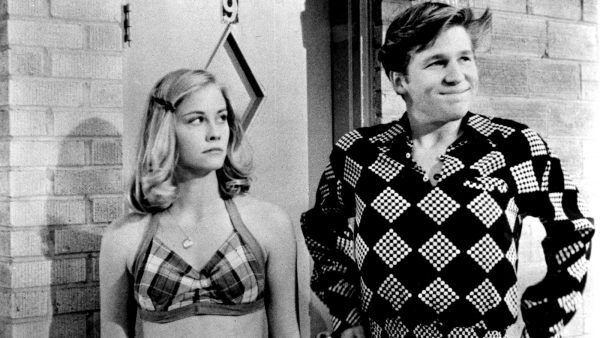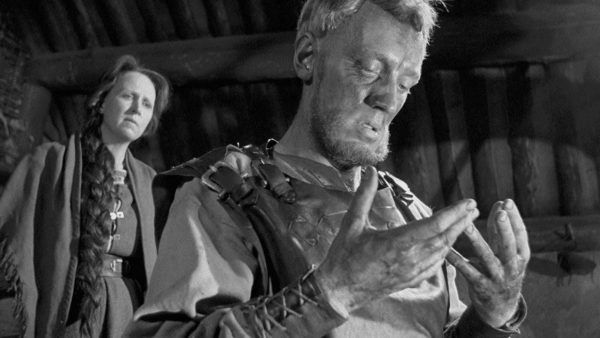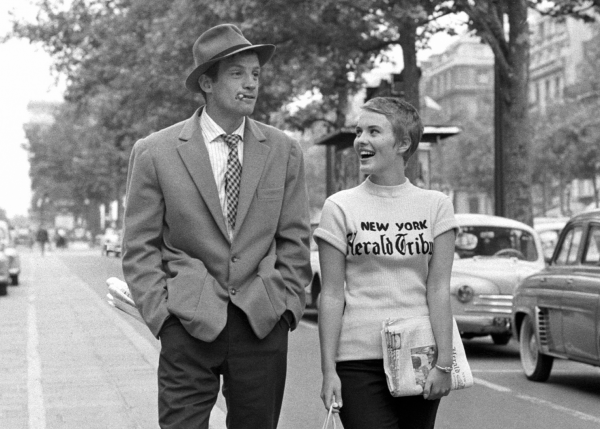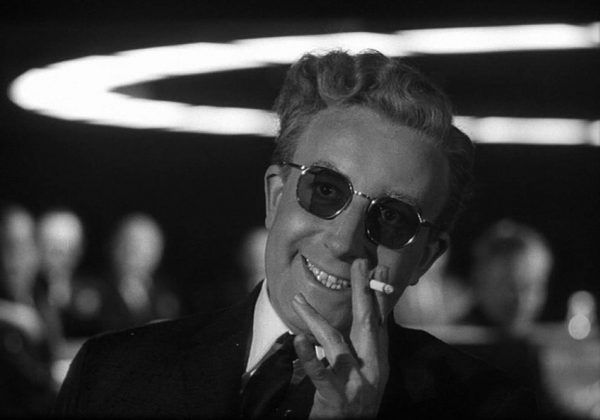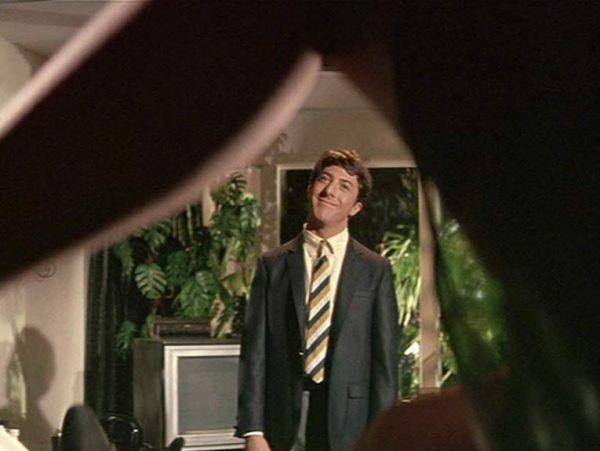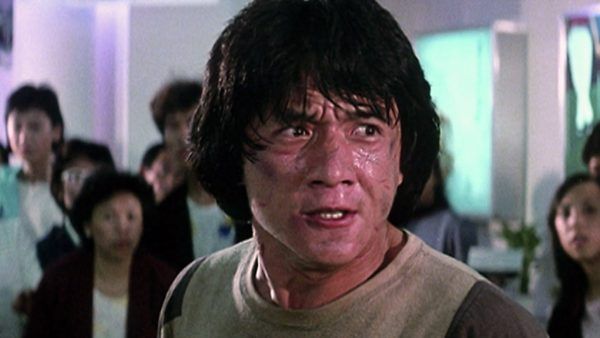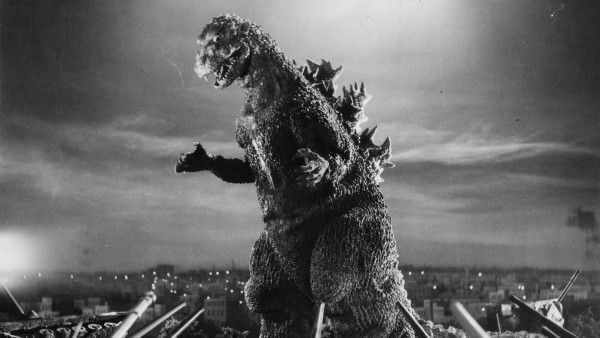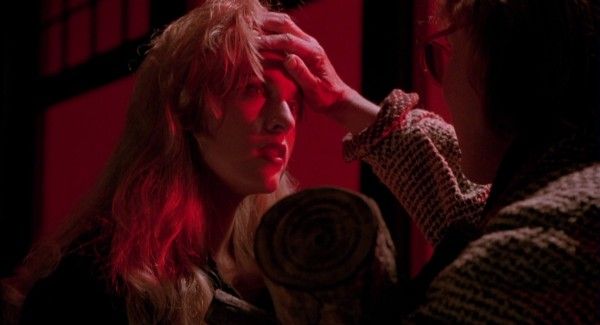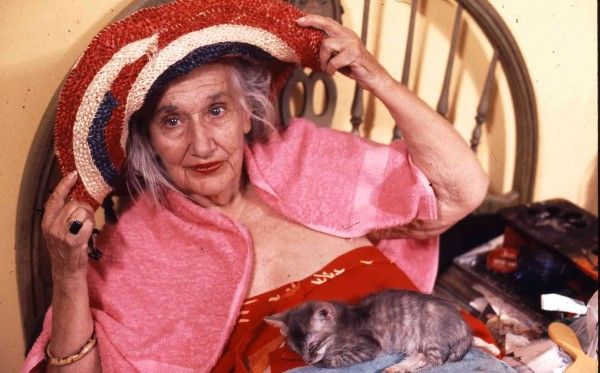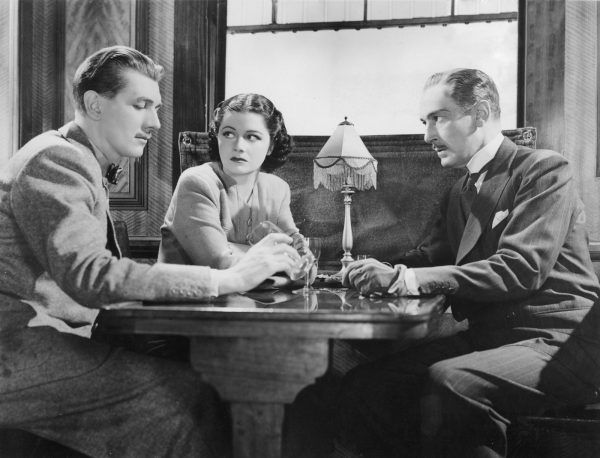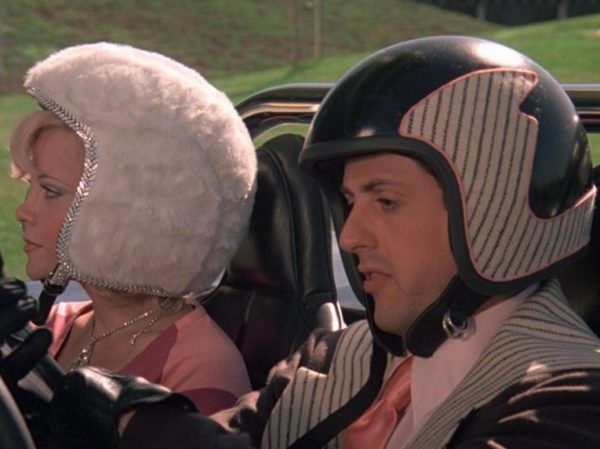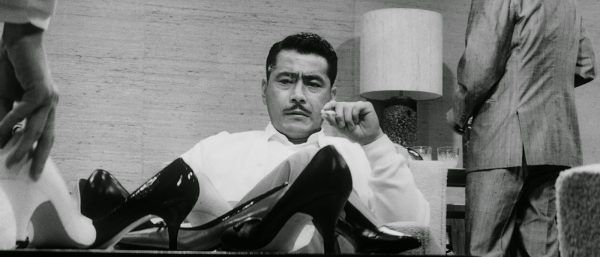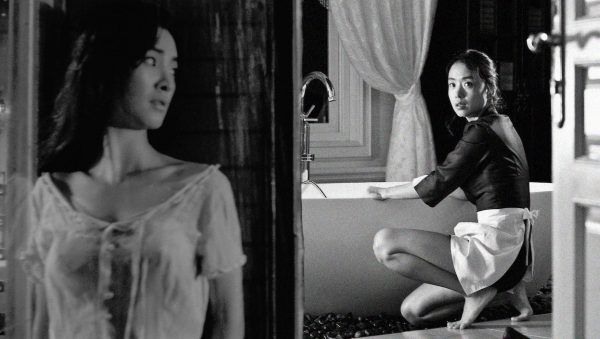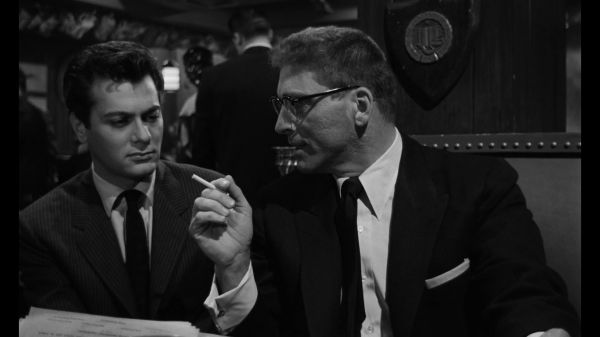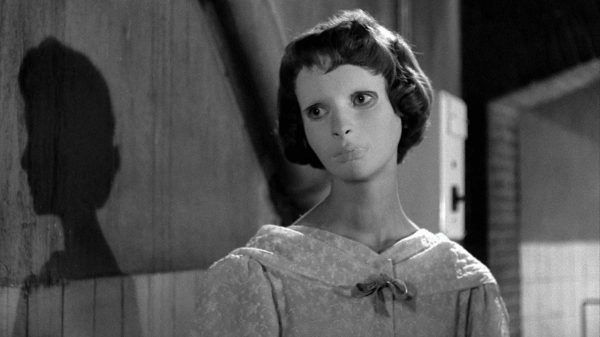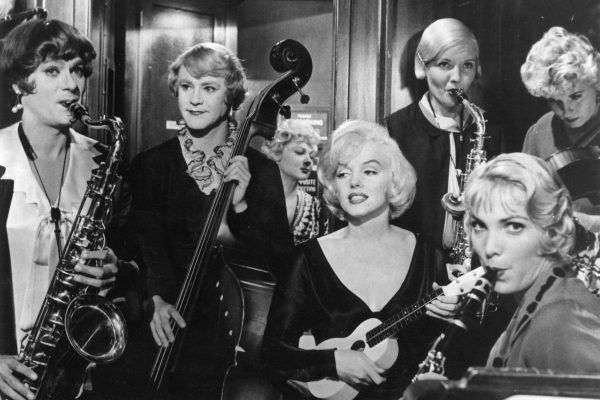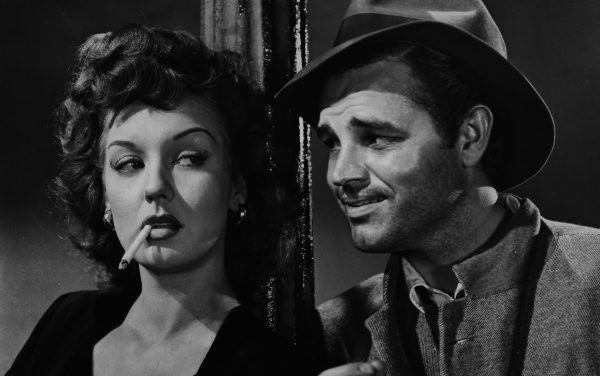Criterion Channel isn't like most other streamers. While other streamers require you to dig through an overwhelming selection to pick out the gems that are worth watching, Criterion Channel has already been curated by cinephiles and compiles the great works of classic, indie, and foreign cinema. There's really nowhere you can go wrong on Criterion because even if you land on a movie you don't like, there's still a case to be made for its historical or artistic significance.
The flip-side to this is that Criterion Channel can easily overwhelm a user. You open it up, and while there are curated programs built around specific eras, genres, or filmmakers, that can still be daunting. That's where we've come in to suggest 20 films that are a good place to start with the service. These aren't the "best" movies on the service because again, Criterion Channel's selection is packed with excellent titles. Instead, these are places where you can start as an entry point and get comfortable with the service before adding deeper cuts to your watchlist.
The Last Picture Show
Director: Peter Bogdanovich
Writer: Peter Bogdanovich, Larry McMurtry
Cast: Jeff Bridges, Cybill Shepherd, Timothy Bottoms, Ben Johnson, Cloris Leachman, Ellen Burstyn, Randy Quaid, Eileen Brennan
Small-town American life has never felt smaller or more complex than in Peter Bogdanovich’s 1971 feature The Last Picture Show. Featuring major turns from leads Jeff Bridges and Cybill Shepherd, The Last Picture Show follows a group of high school grads of the class of 1951 living in a small Texas town, trying to figure out what to do with the rest of their lives. The script benefits from the maverick contributions of Larry McMurtry (later responsible for work on, among other movies, Terms of Endearment and Brokeback Mountain) which, when Bogdanovich’s incisive direction, make The Last Picture House a rapturous bit of filmmaking. - Allie Gemmill
The Virgin Spring
Director: Ingmar Bergman
Writer: Ulla Isaksson
Cast: Max von Sydow, Brigitta Valberg, Gunnel Lindblom, Birgitta Pettersson, Axel Düberg, Tor Isedal
Don’t be fooled: The Virgin Spring is a nail-biting thriller disguised as a drama. Directed by Sweden’s most famous auteur, Ingmar Bergman, The Virgin Spring tells the story of Karin (Birgitta Pettersson) a young woman who is brutally raped and left for dead while running an errand from her family’s remote cabin to a nearby church. The tension ramps up to 11 when the men who raped her unwittingly come to her family’s home innocently asking for food and shelter just moments after she makes it home, clinging to life. In an instant, Karin’s parents (Max von Sydow and Gunnel Lindblom) hide her and decide to exact their revenge against their daughter’s rapists. If this story sounds familiar, it’s no doubt because you’ve seen 1972’s The Last House on the Left (or the 2006 update of that remake), which was inspired by Bergman’s movie. But The Virgin Spring is equally as intense, harrowing, and rewarding a watch, making it well worth your time, especially if you’re in the mood for something you’ve never quite seen before. - Allie Gemmill
Breathless
Director: Jean-Luc Godard
Writer: François Truffaut
Cast: Jean-Paul Belmondo, Jean Seberg, Daniel Boulanger, Roger Hanin, Jean-Pierre Melville, Jean-Luc Godard
Jean-Luc Godard’s Breathless is a seminal entry into the French New Wave movement of the mid-to-late 1960s. A great case of simple storytelling done incredibly well, Breathless blends neorealism with dream-like storytelling as we follow a small-time thief named Michel (Jean-Paul Belmondo) who steals a car, impulsively murders a man, and tries to convince an old flame, American journalism student Patricia (Jean Seberg), to run away with him. Weaving through the Parisian underworld and the impossibly chic world above, Breathless will grab a hold of you and refuse to let go until its final, melancholy moment has been shown. - Allie Gemmill
Dr. Strangelove or: How I Learned to Stop Worrying and Love the Bomb
Director: Stanley Kubrick
Writer: Stanley Kubrick, Terry Southern, Peter George
Cast: Peter Sellers, George C. Scott, Sterling Hayden, Keenan Wynn, Slim Pickens, James Earl jones, Tracy Reed
Arguably the lightest and most offbeat movie director Stanley Kubrick made in his time, Dr. Strangelove or: How I Learned to Stop Worrying and Love the Bomb. If you’re looking for a solid access point into Kubrick’s work (and you can’t find a spare copy of Spartacus hanging around) or you’re interested in diving into the comedic stylings of Peter Sellers, Dr. Strangelove is the movie for you. With the majority of the plot staged in one epic war room, we follow the mishaps and misguided political machinations of numerous foreign figures as they try to avert nuclear war. Sellers is firing on all cylinders, embodying numerous characters with great slapstick results; there’s a good reason the title is named after one of the characters he plays. Hitting theaters in 1964, Dr. Strangelove is very much a commentary on the politics of the moment, with the Cuban Missile Crisis a not-too-distant memory and Cold War subterfuge infiltrating every corner of global politics. Even so, Dr. Strangelove is also an eerily prescient bit of commentary of where the global political game would end up today, making this an unmissable entry in your film education. - Allie Gemmill
The Graduate
Director: Mike Nichols
Writer: Calder Willingham, Buck Henry
Cast: Dustin Hoffman, Anne Bancroft, Katharine Ross, William Daniels, Murray Hamilton, Elizabeth Wilson, Brian Avery
If you’ve come in contact with pop culture in the last 50-odd years, then you’ll have no doubt seen references to the infamous “ Mrs. Robinson, you’re trying to seduce me, aren’t you?” scene or the unforgettable final shot from 1967’s The Graduate. But have you actually seen The Graduate?
Dustin Hoffman gives a truly star-making performance as recent college graduate Ben Braddock. Steeped in the kind of malaise only a recent post-grad knows intimately, Ben quickly finds himself in a very tricky affair with Mrs. Robinson (Anne Bancroft), one half of a couple who happen to be good friends with Ben’s parents. Ben’s romance with Mrs. Robinson is passionate but ultimately short-lived, leaving him haunted by what could have been had it not been cut short. Things get even trickier when he ends up pursuing Mrs. Robinson’s daughter, Elaine Robinson (Katharine Ross).
The Graduate is an important watch, whether you’re looking to become familiar with the work of Hoffman or Mike Nichols (two very important creative figures in 20th century film) or you’re interested in unpacking the headiness of late ‘60s cinema, which frequently grapples with the fading, revolutionary dreams of the Baby Boomers as reality — and adulthood — sets in. The Graduate will stay with you as you ponder the morality of its story and the way in which it very much is a product of its time. - Allie Gemmill
Police Story
Writer/director: Jackie Chan
Cast: Jackie Chan, Brigitte Lin, Maggie Cheung
If you need a history lesson on how Jackie Chan became Jackie Motherf*cking Chan, one of the best places to start is Police Story, the Hong Kong action film he wrote, directed, and starred in. It also happens to be one of the most jaw-dropping action films of all time, full-stop. Chan stars as Sergeant Chan Ka-Kui, a cop framed for murder after he’s assigned to protect a Triad boss’s girlfriend-turned-informant (Brigitte Lin). With Jackie Chan’s Stunt Team along for the ride, Police Story is one of those rare action movies where every punch, kick, and extremely worrisome neck smash makes you wonder how the hell they pulled that off. In this case, set piece after set piece, the answer more often than not is “well, Jackie Chan almost died for real.” - Vinnie Mancuso
Godzilla (1954)
Director: Ishirō Honda
Writers: Takeo Murata, Ishirō Honda
Cast: Haruo Nakajima, Katsumi Tezuka, Akira Takarada, Momoko Kōchi
We can argue all day over which film spawned the Kaiju genre—The Beast from 20,000 Fathoms predates this entry by a year, and then there’s the King Kong of it all—but 1954’s Godzilla is undisputedly the jumping off point for anyone interested in monster movies. You just can’t mess with the king. Director Ishirō Honda’s suitmation classic wouldn’t have kicked off the longest-running film franchise in history if the original wasn’t such a smart, meditative story that deftly blends city-stomping action with a somber atomic-monster metaphor that hits home to this day. As a bonus, once you smash your way through this film, Criterion Channel carries eleven more Godzilla movies. Recommended triple feature: of Godzilla vs. Mechagodzilla, Ghidorah, the Three-Headed Monster, and Destroy All Monsters. - Vinnie Mancuso
Twin Peaks: Fire Walk With Me
Director: David Lynch
Writers: David Lynch, Robert Engels
Cast: Sheryl Lee, Moira Kelly, David Bowie, Ray Wise, Kyle McLachlan
If you’ve never seen Twin Peaks*, will you understand its prequel film, Fire Walk With Me? Well, that really depends on how much you think you can ever really “understand” David Lynch. Like all of the out-there auteur’s work, the story in Fire Walk With Me is secondary to the assault of sights and sound that you can’t quite get a handle on, but will nevertheless leave you moved. So much of that is because of the way Lynch clearly cares for his main character, Laura Palmer (Sheryl Lee), the troubled high-school senior plagued by mysterious spirits and doomed to die before the events of Twin Peaks. Lee is heartbreakingly great here, and even as the movie gets truly wonky and zig-zags between worlds there’s still such a relatable loneliness to Laura Palmer. This is a path into the surreal that’s well worth walking.
(*Also, watch Twin Peaks! It’s great!) - Vinnie Mancuso
Grey Gardens
Directors: David Maysles, Albert Maysles, Ellen Hovde, Muffie Meyer
Widely considered one of the greatest documentaries ever made, the 1975 film follows a reclusive mother-daughter duo born into affluent society, affectionately called Big Edie and Little Edie, who have locked themselves away in squalor at their family estate as their funds dwindled. It’s a stunning portrait of mental illness, codependency, and the flimsiness of class structures (the Edies were related to former first lady Jaqueline Onassis, a false faced of glamour they both desperately cling to despite all but literally drowning in cat piss and old newspapers.) Relentlessly fascinating, intimate and tender, Grey Gardens is a one-of-a-kind look at a unique and honest, if extremely dysfunctional, human relationship, captured for posterity with an artful eye and gripping narrative. – Haleigh Foutch
Fish Tank
Writer/Director: Andrea Arnold
Cast: Michael Fassbender, Kate Jarvis
When you think of the must-watch movies on Criterion Channel, you probably think of the black-and-white classics, award winners, and foreign gems, but Criterion also has plenty of contemporary pieces you’re gonna want to add to your queue. Andrea Arnold’s stark, sensual coming-of-age drama Fish Tank should be top of the list, not just for a phenomenal early-career performance from Michael Fassbender (doing sad-seductive long before Shame). Arnold’s dreamy aesthetic meets an unadorned depiction of coming of age in the lower class, leaning on tremendous performances as Fassbender and leading actress Kate Jarvis, who stars as a rebellious teen who falls for her mother’s handsome boyfriend and strikes up a terribly misguided affair. It’s sexy and tragic, tender and traumatic without hinging on pious moralizing to make its point, veering towards a naturalism that’s right on the line of veite, but always with Arnold’s signature sultry aesthetic. – Haleigh Foutch
The Lady Vanishes
Director: Alfred Hitchcock
Writer: Sydney Gilliat and Frank Laudner
Cast: Margaret Lockwood, Michael Redgrave, Paul Lukas, Dame May Whitty
While you won’t find Alfred Hitchcock’s most lauded or well-known films on Criterion Channel, you can dig into a bunch of his black-and-white early career with Criterion’s British Hitchcock Collection. And there’s lots of good stuff, including The 39 Steps and Sabotage, but for my money, the crown jewel is the pre-war thriller The Lady Vanishes. Margaret Lockwood stars as Iris, a tourist traveling through Europe with her friends when she suspects that a kindly older woman (Dame May Whitty) has gone missing from the train. Hitchcock’s B&W pre-Hollywood films have a whole lot of Expressionist influence with the style of rich contrast and stark framing fueling the contained thrills. It’s an early effort that shows off Hitchcock’s knack for bringing impeccable execution to a high-concept, limited-location script and turning in cracking crowd-pleasing endings to bring it all home. – Haleigh Foutch
Death Race 2000
Director: Paul Bartel
Writers: Robert Thorn, Charles Griffith
Cast: David Carradine, Sylvester Stallone
Ok, it’s not exactly the film you might expect to find in the Criterion Collection, but Death Race 2000 is a cult classic piece of camp action-horror cinema. Produced by legendary schlock filmmaker Roger Corman (who mentored James Cameron, among many others), the movie takes place in a dystopian future in which the Transcontinental Road Race is the primary form of entertainment. It’s like an ultraviolent version of Wacky Races, featuring David Carradine in a leather jumpsuit as reigning champion Frankenstein and Sylvester Stallone as his rival, Machine Gun Joe Viterbo. It is without hyperbole one of the greatest roles of Stallone’s career, if for no other reason than he utters the inexplicable piece of dialogue, “You know Myra, some people might think you’re cute. But me, I think you’re a very large baked potato.” It’s like a precursor to The Road Warrior and The Hunger Games mixed with professional wrestling and macabre humor. Death Race 2000 has been remade a handful of times, but the 1975 original stands out as a truly unique film that’s both a giddily entertaining watch and a fascinating artifact of cinema history. – Thomas Reimann
High and Low
Director: Akira Kurosawa
Writers: Ryūzō Kikushima, Hideo Oguni, Eijiro Hisaita, Akira Kurosawa
Cast: Toshiro Mifune, Tatsuya Nakadai, Kyōko Kagawa, Tatsuya Mihashi, Yutaka Sada
It’s the Criterion Channel. I know you’re gonna wanna watch an Akira Kurosawa. And the Channel offers nearly all of his films — your Seven Samurais, your Rashomons, your Yojimbos. But I’d like to draw your attention to one of his less universally celebrated films — a claustrophobic, black-and-white, contemporarily-set suspense thriller. High and Low finds Kurosawa muse Toshiro Mifune as a sickeningly unsympathetic lead character, a ruthless businessman whose daughter is kidnapped by an unknown criminal with dubious intent. Kurosawa is riffing on the time-honored real-time procedural genre, and what he finds is entertaining, horrifying, and mercilessly indicting of who the real monsters are. It’s crackerjack entertainment that makes you think, and it’s an underseen jewel in Kurosawa’s crown.
The Housemaid
Director/Writer: Kim Ki-young
Cast: Kim Jin-kyu, Lee Eun-shim, Ju Jeung-ryu, Um Aing-ran
Released in 1960, Kim Ki-young’s The Housemaid is one of the most essential and influential films ever made in South Korea. The black-and-white shocker details a crackling story of obsession, eroticism, violence, manipulation, and madness -- all while commenting slyly on the class issues rife in our modernized society of wealth hierarchies and human labor-driven conveniences. It all starts when a composer and his pregnant wife, working herself to the bone despite her condition, decide to hire a housemaid to help around the house. And things escalate… quickly. Kim’s work deserves to be mentioned in the same breath as canonical psychological thrillers like Psycho or Diabolique. It twists just as many “primal human impulses” to their breaking point, and possesses a sick and squirming sense of humor, right down to its morbidly self-aware ending. - Greg Smith
Stop Making Sense
Director: Jonathan Demme
Writers: Talking Heads, Jonathan Demme
Cast: Talking Heads
Paradoxically, everything in Stop Making Sense makes perfect sense. Like much of the work of the Talking Heads’, the David Byrne-fronted band that specialized in dance-floor ready art-post-punk-funk masterpieces, every piece of idiosyncratic, nuanced element of performance is immaculately crafted yet utterly spontaneous, observing human behavior from a vantage point yet utterly human. I’d call Stop Making Sense the purest “family film” on the Criterion Channel, as its songs, production values, dance breaks, and absolutely genius “one member of the band comes on one song at a time” construction plays to everyone for different reasons. Burn down the house with Stop Making Sense, posthaste.
Sweet Smell of Success
Director: Alexander Mackendrick
Writers: Clifford Odets, Ernest Lehman, Alexander Mackendrick
Cast: Tony Curtis, Burt Lancaster, Susan Harrison, Martin Milner, Emile Meyer
If you’re a fan of savage contemporary TV dramas like Succession, you owe it to yourself to sniff out the Sweet Smell of Success. Though the picture was made in 1957, it feels like it was made yesterday. It’s a roller-coaster of a noir-tinged character study (character implosion/explosion?), following a never-better Tony Curtis as a sniveling, weaselly press agent eager to do anything to appease his boss Burt Lancaster and gain traction in Lancaster’s powerful gossip column. And I, mean, anything. Crackling with delicious, delirious, diabolical dialogue (“The cat’s in the bag and the bag’s the river” goes one bon mot, later taken for the titles of a Breaking Bad two-parter), and festering at the seams with an absolutely ghastly view of the cynicism of the human race, Sweet Smell of Success never made being bad feel so ickily good.
Eyes without a Face
Director: Georges Franju
Writers: Georges Franju, Jean Redon, Pierre Boileau, Thomas Narcejac, Claude Sautet
Cast: Pierre Brasseur, Édith Scob, Alida Valli, Juliette Mayniel
Take any of the prestige horror pictures that have come out recently (Hereditary, Goodnight Mommy, etc.). Take a piece of red yarn and connect it to “the past” -- you know, like you’re a Horror Movie Cop. You will inevitably link it to Eyes Without a Face, the 1960 film whose influence cannot be overstated, and whose imagery continues to shock. After Édith Scob’s face is horribly disfigured in a car accident, her father, a successful plastic surgeon played by Pierre Brasseur, goes through desperate measures to perform a successful face transplant. The results are, despite being a black-and-white film produced under the content scrutinies its year of release, 1960, shockingly gruesome, gory, and under-the-skin-crawling. The images director Georges Franju produces, with brilliantly hazy lensing from DP Eugen Schüfftan, feel so ahead of their time in their surreal, brutal poetry. And its narrative, written by five folks, speaks powerfully to the issues of control, sexism, beauty, and the patriarchy.
Some Like It Hot
Writer/Director: Billy Wilder
Cast: Marilyn Monroe, Tony Curtis, and Jack Lemmon
One of the greatest comedies ever made, the film takes place in Prohibition-era Chicago where musicians Joe (Tony Curtis) and Jerry (Jack Lemmon) have to sneak out of town to avoid the mob and pose as women Josephine and Daphne. They join an all-female band, but both end up falling for the beguiling Sugar Kane (Marilyn Monroe). Everyone here is playing at the top of their game with the jokes and sight gags landing fast and furious. It's a quintessential farce that has influenced countless comedies but remains hilarious in your own right. Your cinematic education isn't complete until you take time to watch Some Like It Hot. – Matt Goldberg
Detour
Director: Edgar G. Ulmer
Writer: Martin Goldsmith
Cast: Tom Neal, Ann Savage
A nasty piece of work and an essential piece of film noir, the 1945 movie follows a the sad tale of a hapless hitchhiker, Al Roberts (Tom Neal) who gets caught up in a series of unbelievable events that push him further down a dark road. It's a twisted morality play where Al constantly bemoans his own poor luck while refusing to take responsibility for his actions. At only 68 minutes, Detour is a deliciously vicious picture that hits upon notions of chaos and punishment in an uncaring world. It may not be the most polished film noir ever made, but damn if it isn't effective over 70 years later. – Matt Goldberg
Following
Writer/Director: Christopher Nolan
Cast: Jeremy Theobald, Alex Haw, Lucy Russell, John Nolan
Before he was directing blockbusters like The Dark Knight and Inception and making himself a household name, Christopher Nolan's first movie was a sneaky and effective 1998 noir. The film follows an unnamed young man who takes it upon himself to start randomly following strangers. However, this bit of voyeurism ends up ensnaring him in a web of intrigue where he's more pawn than player. You can see the seeds of Nolan's effective storytelling here and how he would go on to play with ideas of spectator and unreliable protagonists in future films like Memento, Inception, and The Prestige. If you're a fan of Nolan's blockbusters, you owe it to yourself to check out this terrific indie.


